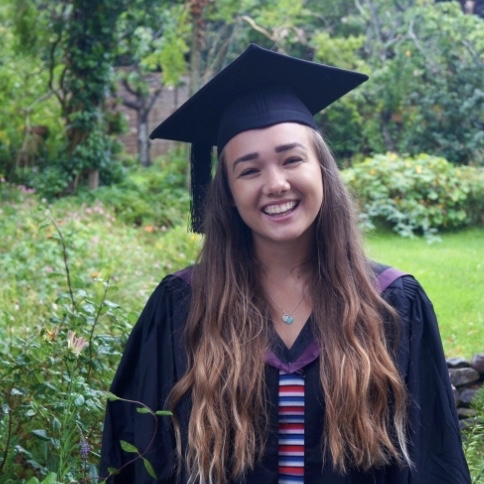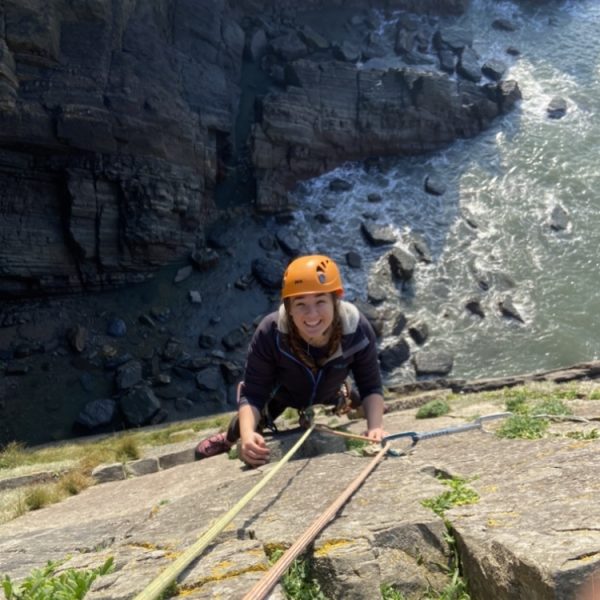I studied Outdoor Adventure Education at Plymouth Marjon University and am now doing my Masters in Outdoor and Experiential Learning at the University of Cumbria.

I hadn’t done much in “the outdoors” before university so I was unsure about what to expect. I studied STEM subjects in sixth form (Chemistry, Maths and PE for A Level, and Biology and Chemistry at AS Level). I wanted to do something that I enjoyed, rather than what I felt like I was being pushed into. I went to a single-sex school and so studying STEM wasn’t unusual, and my education so far hadn’t involved gender stereotypes or negative experiences.
Whilst on both my university degrees there has been a fairly even split of males and females, this was rarely reflected in conversations, where some people, often the men in the group, dominated discussions. This has become more prevalent in my masters, whereas in my undergraduate degree, it was mostly practical sessions that tended to become a display of masculinity, ego and prowess. This was difficult in both academic and practical sessions. I often feel the need to “prove” myself, my ability or my right to be there.
I’ve been on many courses as the only woman. It’s hard not to notice this or have it impact you. On courses, I’ve been subjected to comments such as “if you’re not going to cook my dinner, at least just sit there and look pretty” whilst being excluded from practical activities, and had jobs or tasks taken off me in the name of being helpful. Whilst some things are nice gestures, often when that person wouldn’t offer the same help to a male peer, it isn’t quite as supportive as it seems.
At times it pushes me to be better or braver, but it is often disheartening, especially in courses where there is a practical element to assessments where I feel as if I can never be strong enough or good enough to compete. When you are the minority in a group, sometimes you feel as if you are representing your “kind”. I feel additional pressure to perform well, as I don’t want people to think badly of all women because I was too slow, too weak or lacked understanding.
Working collaboratively with others is also important in outdoor education. You need a partner to climb with or colleagues to discuss research with. It can be frustrating when these opportunities fall through once it is clear that you are only interested in the sport or work, rather than in perusing romantic relations with a person. It can be especially difficult to feel respected and valued in your field when so often you are reduced to your desirability.
There are some very successful women in the outdoors, both as academics and as practitioners. They are inspirational and great role models, for example, Easkey Britton, Anna Flemming, Sarah Outen, and Rhiane Fatinikun. However, the women that you see are usually at the top of their field. It is hard to envisage yourself reaching these positions when there are so few visible role models that are still progressing or in the early stages of their career development.

However, I believe that there is a space for women in the outdoors. There are many people working towards making the environment more inclusive for all minority groups and this is something that I want to strive towards in my work. Black Girls Hike are championing ethnic minority female involvement in the outdoors and Outward Bound is continuing to run its Women’s Outdoor Leadership programme.